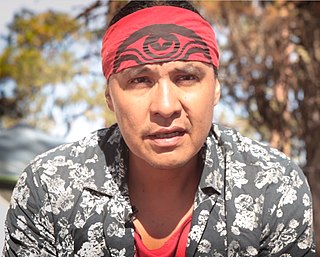A Quote by Bayard Rustin
The principal factors which influenced my life are 1) nonviolent tactics; 2) constitutional means; 3) democratic procedures; 4) respect for human personality; 5) a belief that all people are one.
Related Quotes
Let's not use the term democracy as a play on words which is what people commonly do, using human rights as a pretext. Those people that really violate human rights [the West] violate human rights from all perspectives. Typically on the subject of human rights regarding the nations from the south and Cuba they say, "They are not democratic societies, they do not respect human rights, and they do not respect freedom of speech".
The Pentagon is constantly adjusting tactics because they have the flexibility from the White House to do so. The strategy is to help the Iraqi people achieve their objectives and their dreams, which is a democratic society. That's the strategy. The tactics it's important that we stay there and get it done; or we leave. We're not leaving so long as I'm the president. That would be a huge mistake.
I myself would go for nonviolence if it was consistent, if everybody was going to be nonviolent all the time. I'd say, okay, let's get with it, we'll all be nonviolent. But I don't go along with any kind of nonviolence unless everybody's going to be nonviolent. If they make the Ku Klux Klan nonviolent, I'll be nonviolent. If they make the White Citizens Council nonviolent, I'll be nonviolent. But as long as you've got somebody else not being nonviolent, I don't want anybody coming to me talking any nonviolent talk.
I think, questions about what it means to respect nature become very important because just as in human society, for example, part of what it is for me to live a good life as a human being in a human society is to have respect for others around me. Now, that respect, to some extent, can be thought of as being grounded in the rights and interest of others but it also has to do with the stance that I take in the world and what it is that provides meaning and significance in my own life and I think there are similar ideas of respect for nature that apply as well.
What if we choose not to do the things we are supposed to do? The principal gain is a sense of an authentic act - and an authentic life. It may be a short one, but it is an authentic one, and that's a lot better than those short lives full of boredom. The principal loss is security. Another is respect from the community. But you gain the respect of another community, the one that is worth having the respect of.
In a democratic society, as Max Weber said, what is possible is only possible because some people have demanded the impossible. The abolitionists helped to create a public discourse in which men like Lincoln become possible. That doesn't mean Lincoln is an abolitionist. It means there is a public opinion out there which is being influenced by antislavery sentiment.
We can't attribute a long history of democratic traditions to Japan, either, but today Japan boasts a fully-fledged democracy in which governments change according to democratic procedures. It's no coincidence that the Taiwanese, Japanese, and South Korean economies are among the most innovative in Asia.






































